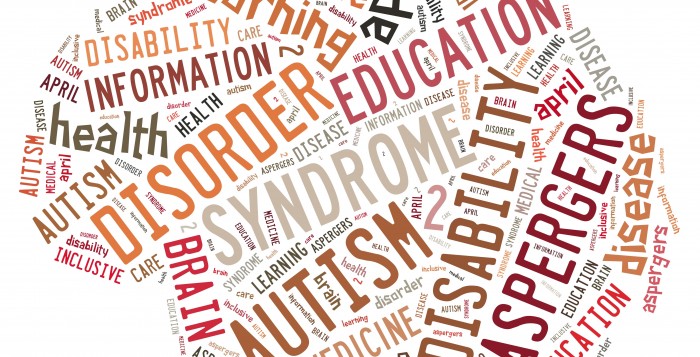The Centers for Medicare and Medicaid Services (CMS) published the final rule that updates the fiscal year (FY) 2016 Medicare payment policies and rates for the Inpatient Rehabilitation Facility Prospective Payment System (IRF PPS) and the IRF Quality Reporting Program (IRF QRP) in the August 6, 2015 Federal Register. Highlights of the final rule are provided below.
Changes to the Payment Rates: CMS is updating the IRF PPS payments for FY 2016 to reflect an estimated 1.7 percent increase (reflecting a new IRF-specific market basket estimate of 2.4 percent, reduced by a 0.5 percentage point multi-factor productivity adjustment and a 0.2 percentage point reduction required by law). An additional 0.1 percent increase to aggregate payments due to updating the outlier threshold results in an overall update of 1.8 percent (or $135 million), relative to payments in FY 2015.
No Changes to the Facility-Level Adjustments: As stated in the FY 2015 IRF PPS final rule, CMS froze the facility-level adjustment factors at the FY 2014 levels for FY 2015 and all subsequent years. For FY 2016, CMS will continue to hold the facility-level adjustment factors at the FY 2014 levels as they continue to monitor the most current IRF claims data available to assess the effects of the FY 2014 changes.
ICD-10-CM Conversion: In the FY 2015 IRF PPS final rule, CMS finalized conversions from the International Classification of Diseases, 9th Revision, Clinical Modification (ICD-9-CM) to the International Classification of Diseases, 10th Revision, Clinical Modification (ICD-10-CM) for the IRF PPS, which will be effective when ICD-10-CM becomes the required medical data code set for use on Medicare claims and IRF PAI submissions. The implementation date for ICD-10-CM is October 1.
IRF-specific Market Basket: For FY 2016, CMS is finalizing an IRF-specific market basket to replace the Rehabilitation, Psychiatric and Long-Term Care market basket. The IRF market basket is based on 2012 data (the RPL market basket is based on 2008 data). The IRF market basket is derived from using both freestanding and hospital-based IRF Medicare cost report data from FY 2012.
Changes to the Wage Index: CMS finalized its proposal for transitioning to the wage index associated with the new Office of Management and Budget delineations without any modifications. A one-year blended wage index will be provided for all IRFs, and a three-year phase-out of the rural adjustment for IRFs that were deemed rural in FY 2015 but are considered urban under the new delineations. CMS will apply the one year blended wage index in FY 2016 for all geographic areas, to assist IRFs in adapting to these changes.
- FY 2015 rural IRFs classified as urban in FY 2016 will receive two-thirds of the FY 2015 rural adjustment in FY 2016, as well as the blended wage index.
- For FY 2017, these IRFs will receive the full FY 2017 wage index and one-third of the FY 2015 rural adjustment.
- For FY 2018, these IRFs will receive the full FY 2018 wage index without a rural adjustment.
Changes to the IRF Quality Reporting Program (QRP): The Improving Medicare Post-Acute Care Transformation Act of 2014 (“IMPACT” Act) added Section 1899B to the Social Security Act (the Act) to require that IRFs report data on measures that satisfy measure domains specified in the Act. These same measures are to be implemented in long-term care hospitals, IRFs, skilled nursing facilities and home health agencies. This final rule adopts measures that satisfy three of the quality domains required by the IMPACT Act in FY 2016: skin integrity and changes in skin integrity; functional status, cognitive function, and changes in function and cognitive function; and incidence of major falls. IRFs that fail to submit the required quality data to CMS will be subject to a 2 percentage point reduction to their applicable FY annual increase factor.
Finalized Changes:
The domains specified by the IMPACT Act, and the quality measures finalized, are as follows:
- Domain 1: Skin integrity and changes in skin integrity:
- Quality Measure: “Percent of Residents or Patients with Pressure Ulcers That Are New or Worsened” (NQF #0678)
- Domain 2: Functional status, cognitive function, and changes in function and cognitive function:
- Quality Measure: Application of the “Percent of Long-Term Care Hospital Patients With an Admission and Discharge Functional Assessment and a Care Plan that Addresses Function” (NQF #2631; Endorsed on July 23, 2015)
- Domain 3: Incidence of major falls:
- Quality Measure: Application of the “Percent of Residents Experiencing One or More Falls with Major Injury” (NQF #0674)
In addition to the measures listed above, CMS adopted four additional functional status quality measures, and completed the previously finalized quality measure “All-Cause Unplanned Readmission Measure for 30 Days Post Discharge from Inpatient Rehabilitation Facilities” (NQF #2502), in order to establish its newly NQF-endorsed status.
Additionally, CMS will begin publically reporting IRF quality data in the fall of 2016. This includes a 30-day period for review and correction of quality data prior to public display.
Finally, CMS is temporarily suspending their previously finalized data validation policy in order to allow time to develop a more comprehensive policy that will potentially decrease the burden on IRF providers, allow CMS the ability to establish an estimation of accuracy related to quality data submitted to them, and facilitate the alignment of the IRF validation policy with that of other CMS quality reporting programs policies.
















